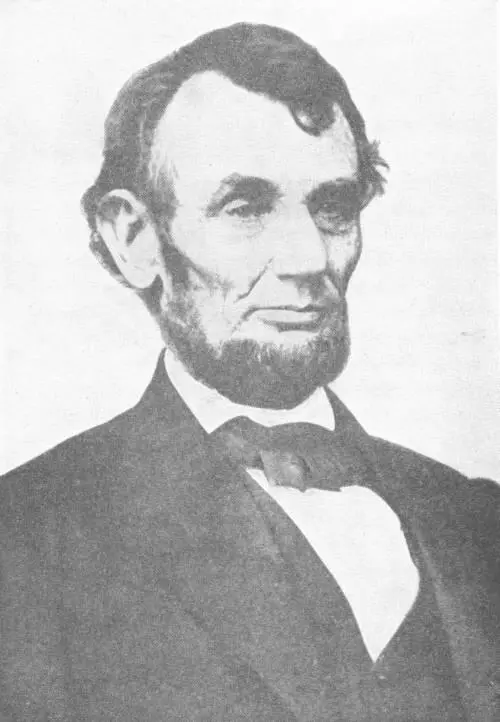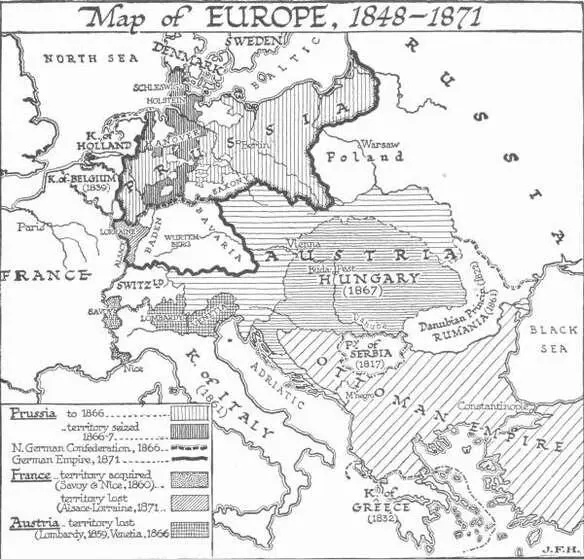Herbert Wells - A Short History of the World
Здесь есть возможность читать онлайн «Herbert Wells - A Short History of the World» весь текст электронной книги совершенно бесплатно (целиком полную версию без сокращений). В некоторых случаях можно слушать аудио, скачать через торрент в формате fb2 и присутствует краткое содержание. Год выпуска: 2011, Жанр: История, на английском языке. Описание произведения, (предисловие) а так же отзывы посетителей доступны на портале библиотеки ЛибКат.
- Название:A Short History of the World
- Автор:
- Жанр:
- Год:2011
- ISBN:нет данных
- Рейтинг книги:4 / 5. Голосов: 1
-
Избранное:Добавить в избранное
- Отзывы:
-
Ваша оценка:
- 80
- 1
- 2
- 3
- 4
- 5
A Short History of the World: краткое содержание, описание и аннотация
Предлагаем к чтению аннотацию, описание, краткое содержание или предисловие (зависит от того, что написал сам автор книги «A Short History of the World»). Если вы не нашли необходимую информацию о книге — напишите в комментариях, мы постараемся отыскать её.
A Short History of the World — читать онлайн бесплатно полную книгу (весь текст) целиком
Ниже представлен текст книги, разбитый по страницам. Система сохранения места последней прочитанной страницы, позволяет с удобством читать онлайн бесплатно книгу «A Short History of the World», без необходимости каждый раз заново искать на чём Вы остановились. Поставьте закладку, и сможете в любой момент перейти на страницу, на которой закончили чтение.
Интервал:
Закладка:

ABRAHAM LINCOLN
This four years’ struggle had meant an enormous physical and moral strain for the people of the United States. The principle of state autonomy was very dear to many minds, and the North seemed in effect to be forcing abolition upon the South. In the border states brothers and cousins, even fathers and sons, would take opposite sides and find themselves in antagonistic armies. The North felt its cause a righteous one, but for great numbers of people it was not a full-bodied and unchallenged righteousness. But for Lincoln there was no doubt. He was a clear-minded man in the midst of much confusion. He stood for union; he stood for the wide peace of America. He was opposed to slavery, but slavery he held to be a secondary issue; his primary purpose was that the United States should not be torn into two contrasted and jarring fragments.
When in the opening stages of the war Congress and the Federal generals embarked upon a precipitate emancipation, Lincoln opposed and mitigated their enthusiasm. He was for emancipation by stages and with compensation. It was only in January, 1865, that the situation had ripened to a point when Congress could propose to abolish slavery for ever by a constitutional amendment, and the war was already over before this amendment was ratified by the states.
As the war dragged on through 1862 and 1863, the first passions and enthusiasms waned, and America learnt all the phases of war weariness and war disgust. The President found himself with defeatists, traitors, dismissed generals, tortuous party politicians, and a doubting and fatigued people behind him and uninspired generals and depressed troops before him; his chief consolation must have been that Jefferson Davis at Richmond could be in little better case. The English government misbehaved, and permitted the Confederate agents in England to launch and man three swift privateer ships—the Alabama is the best remembered of them—which chased United States shipping from the seas. The French army in Mexico was trampling the Monroe Doctrine in the dirt. Came subtle proposals from Richmond to drop the war, leave the issues of the war for subsequent discussion, and turn, Federal and Confederate in alliance, upon the French in Mexico. But Lincoln would not listen to such proposals unless the supremacy of the Union was maintained. The Americans might do such things as one people but not as two.
He held the United States together through long weary months of reverses and ineffective effort, through black phases of division and failing courage; and there is no record that he ever faltered from his purpose. There were times when there was nothing to be done, when he sat in the White House silent and motionless, a grim monument of resolve; times when he relaxed his mind by jesting and broad anecdotes.
He saw the Union triumphant. He entered Richmond the day after its surrender, and heard of Lee’s capitulation. He returned to Washington, and on April 11th made his last public address. His theme was reconciliation and the reconstruction of loyal government in the defeated states. On the evening of April 14th he went to Ford’s theatre in Washington, and as he sat looking at the stage, he was shot in the back of the head and killed by an actor named Booth who had some sort of grievance against him, and who had crept into the box unobserved. But Lincoln’s work was done; the Union was saved.
At the beginning of the war there was no railway to the Pacific coast; after it the railways spread like a swiftly growing plant until now they have clutched and held and woven all the vast territory of the United States into one indissoluble mental and material unity—the greatest real community—until the common folk of China have learnt to read—in the world.
LXI
THE RISE OF GERMANY TO PREDOMINANCE IN EUROPE
WE have told how after the convulsion of the French Revolution and the Napoleonic adventure, Europe settled down again for a time to an insecure peace and a sort of modernized revival of the political conditions of fifty years before. Until the middle of the century the new facilities in the handling of steel and the railway and steamship produced no marked political consequences. But the social tension due to the development of urban industrialism grew. France remained a conspicuously uneasy country. The revolution of 1830 was followed by another in 1848. Then Napoleon III, a nephew of Napoleon Bonaparte, became first President, and then (in 1852) Emperor.
He set about rebuilding Paris, and changed it from a picturesque seventeenth century insanitary city into the spacious Latinized city of marble it is to-day. He set about rebuilding France, and made it into a brilliant-looking modernized imperialism. He displayed a disposition to revive that competitiveness of the Great Powers which had kept Europe busy with futile wars during the seventeenth and eighteenth centuries. The Tsar Nicholas I of Russia (1825- 1856) was also becoming aggressive and pressing southward upon the Turkish Empire with his eyes on Constantinople.
After the turn of the century Europe broke out into a fresh cycle of wars. They were chiefly “balance-of- power” and ascendancy wars. England, France and Sardinia assailed Russia in the Crimean war in defence of Turkey; Prussia (with Italy as an ally) and Austria fought for the leadership of Germany, France liberated North Italy from Austria at the price of Savoy, and Italy gradually unified itself into one kingdom. Then Napoleon III was so ill advised as to attempt adventures in Mexico, during the American Civil War; he set up an Emperor Maximilian there and abandoned him hastily to his fate—he was shot by the Mexicans—when the victorious Federal Government showed its teeth.

In 1870 came a long-pending struggle for predominance in Europe between France and Prussia. Prussia had long foreseen and prepared for this struggle, and France was rotten with financial corruption. Her defeat was swift and dramatic. The Germans invaded France in August, one great French army under the Emperor capitulated at Sedan in September, another surrendered in October at Metz, and in January 1871, Paris, after a siege and bombardment, fell into German hands. Peace was signed at Frankfort surrendering the provinces of Alsace and Lorraine to the Germans. Germany, excluding Austria, was unified as an empire, and the King of Prussia was added to the galaxy of European Cæsars, as the German Emperor.
For the next forty-three years Germany was the leading power upon the European continent. There was a Russo-Turkish war in 1877-8, but thereafter, except for certain readjustments in the Balkans, European frontiers remained uneasily stable for thirty years.
LXII
THE NEW OVERSEAS EMPIRES OF STEAMSHIP AND RAILWAY
THE end of the eighteenth century was a period of disrupting empires and disillusioned expansionists. The long and tedious journey between Britain and Spain and their colonies in America prevented any really free coming and going between the home land and the daughter lands, and so the colonies separated into new and distinct communities, with distinctive ideas and interests and even modes of speech. As they grew they strained more and more at the feeble and uncertain link of shipping that had joined them. Weak trading-posts in the wilderness, like those of France in Canada, or trading establishments in great alien communities, like those of Britain in India, might well cling for bare existence to the nation which gave them support and a reason for their existence. That much and no more seemed to many thinkers in the early part of the nineteenth century to be the limit set to overseas rule. In 1820 the sketchy great European “empires” outside of Europe that had figured so bravely in the maps of the middle eighteenth century, had shrunken to very small dimensions. Only the Russian sprawled as large as ever across Asia.
Читать дальшеИнтервал:
Закладка:
Похожие книги на «A Short History of the World»
Представляем Вашему вниманию похожие книги на «A Short History of the World» списком для выбора. Мы отобрали схожую по названию и смыслу литературу в надежде предоставить читателям больше вариантов отыскать новые, интересные, ещё непрочитанные произведения.
Обсуждение, отзывы о книге «A Short History of the World» и просто собственные мнения читателей. Оставьте ваши комментарии, напишите, что Вы думаете о произведении, его смысле или главных героях. Укажите что конкретно понравилось, а что нет, и почему Вы так считаете.








